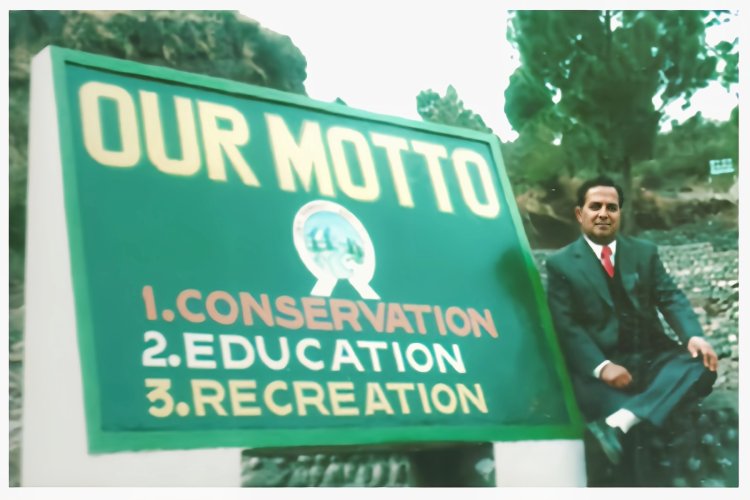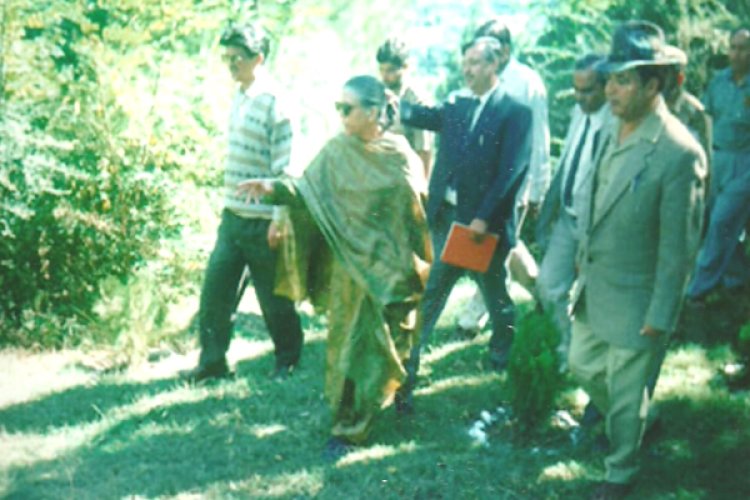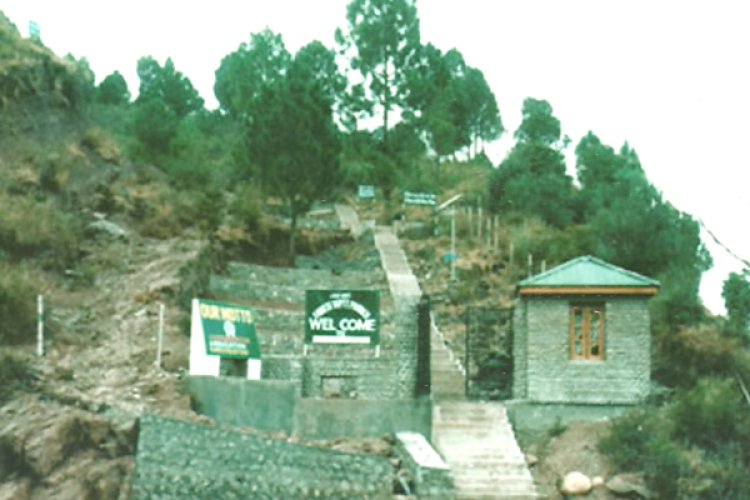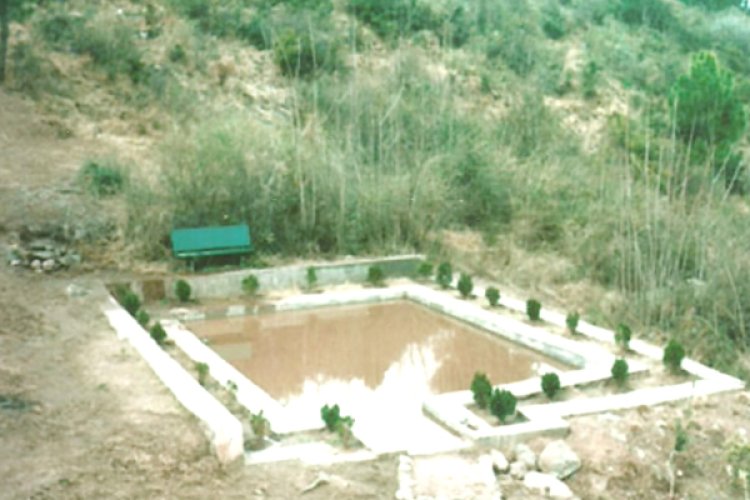City Forest Poonch: A Testament to Conservation Efforts and Nature's Splendor
City Forest Poonch, a barren land transformed into, region's first man-made forest, promoting biodiversity and offering scenic viewpoints. Despite neglect and encroachment, Mughal's legacy inspires efforts to restore this haven. Let's honor his dedication and renew our commitment to preserving nature's wonders for future generations.
Forests are invaluable natural assets that provide us with a multitude of benefits. They are not only crucial for maintaining ecological balance but also serve as havens of tranquility and beauty. In the picturesque city of Poonch, Divisional Forest Officer (DFO), M.B. Mughal, transformed a barren stretch of land into a thriving man-made forest—a true testament to the power of human dedication and environmental stewardship. This remarkable achievement marked the establishment of the first-ever man-made forest in the region.
In the 1970s, during his tenure in Poonch, M.B. Mughal began planting various types of floral and ornamental species in the city forest. His vision was to create a natural oasis that would not only offer recreational opportunities but also promote the regeneration of plant life through the pollination process. Over time, the forest flourished, and numerous new plant species emerged, adding to its biodiversity and ecological value.
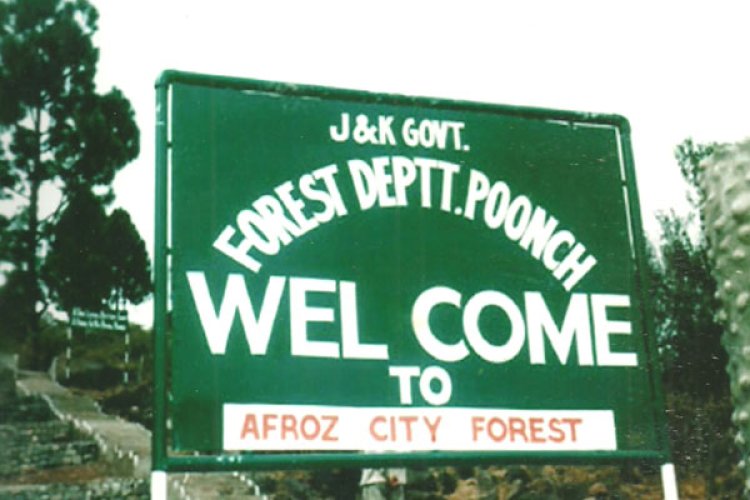
The Forest Department, under DFO M.B. Mughal's guidance, took charge of the development and growth of the city forest in 1996. A considerable sum of Rs. 10 lakhs was invested in constructing five viewpoints within the forest area. These viewpoints were aptly named with the letter 'H,' showcasing M.B. Mughal's creative approach. The Heritage View Point, Humming Heights (Tatta Kutti View Point), Harmony View Point, Sangam View Point, and Heaven View Point provided visitors with breathtaking vistas of the surrounding landscape, including the peaks of Tatta Kutti and the city of Poonch.
To enhance the visitors' experience, a glass house was erected near the forest's entrance, offering a unique opportunity to immerse oneself in nature's embrace. Additionally, Pine Lodge, a well-furnished guest house, provided comfortable accommodations for those who wished to spend more time surrounded by the serenity of the forest. A cafeteria catered to the needs of trekkers, offering refreshments and meals along the way.
Two water bodies, named Nandan Sar and Neel Sar, were incorporated into the forest to add to its aesthetic appeal. These bodies were reminiscent of the famous water bodies of Pir Panjal, serving as a reminder of the region's natural wonders. Water was sourced from Panch Kakrian and transported through pipes to sustain the aquatic life within these serene ponds, which were home to fish and ducks.
The former Deputy Chief Secretary, Miss Shushma Chowdhury, paid a visit to the city forest and participated in tree planting activities. She expressed her admiration for M.B. Mughal's efforts. Additionally, the former Deputy Commissioner and Brigadier provided valuable contributions in terms of funds and resources.
For years, the man-made forest stood as a prime example of human innovation and nature's enduring beauty, attracting visitors who sought solace and respite within its boundaries. Unfortunately, due to human interference and encroachment, this once-pristine forest has fallen victim to neglect. Illegitimate occupants have gradually expanded their boundaries, encroaching upon significant portions of the forest area. The lack of attention and conservation efforts by the concerned authorities has resulted in the deterioration of the forest's condition.
Nevertheless, the legacy of M.B. Mughal's efforts and dedication remains undeniable. His relentless pursuit of evicting encroachers from the forest land and restoring its pristine state is commendable. It is essential for the administration to acknowledge and honor his contributions to environmental preservation and protection.
The dilapidated state of the five viewpoints is a stark reminder of the negligence and dereliction the forest has suffered. Several viewpoints have been severely damaged, with only faint signs of their existence remaining. The once captivating glass house now lies in a pitiable condition, its materials lost to time. The water bodies, once teeming with life, have been filled with mud and garbage, resembling remnants of an ancient civilization.
It is crucial to revive, repair, and renovate the man-made forest, ensuring that the public can once again revel in the wonders of nature as they traverse through its verdant expanse. M.B. Mughal's creativity and unwavering efforts to protect and preserve the environment must not go unnoticed. The administration should pay due respect to his invaluable contributions by giving him the well-deserved tribute he merits.
Let us not allow the beauty and splendor of this man-made forest to fade away. Instead, let us come together, reaffirming our commitment to environmental conservation, and restore this natural treasure to its former glory. By doing so, we ensure that future generations can continue to enjoy the gifts of nature and appreciate the transformative power of human dedication and love for the environment

